New Resources for Part-time Faculty
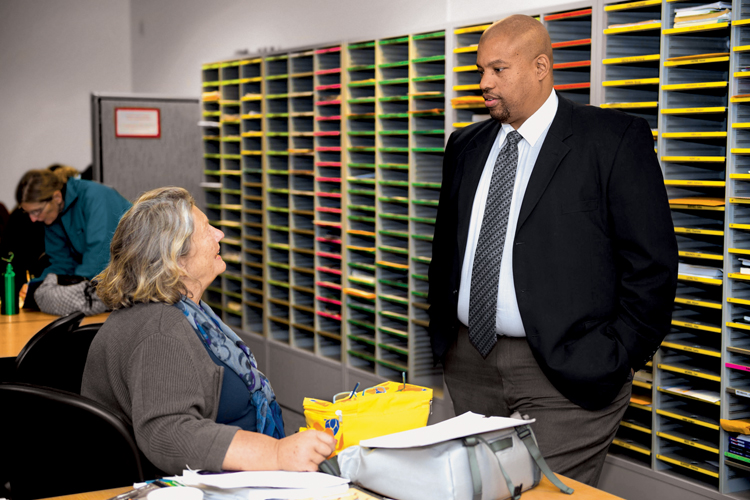 Teaching part time is a way of life for more than 1,200 instructors at Montgomery College. Overall, part-time faculty teach more than half of all courses MC offers; they teach roughly 1,000 credit and 200 noncredit courses. In some departments, they comprise 90 percent of instructional staff. This scenario is not unusual at community colleges nationwide, but how part-time faculty are treated can vary from place to place.
Teaching part time is a way of life for more than 1,200 instructors at Montgomery College. Overall, part-time faculty teach more than half of all courses MC offers; they teach roughly 1,000 credit and 200 noncredit courses. In some departments, they comprise 90 percent of instructional staff. This scenario is not unusual at community colleges nationwide, but how part-time faculty are treated can vary from place to place.
This fall, the College began a comprehensive effort to bring its part-time faculty further into the fold, from their first day on campus. Under a new initiative, the Institute for Part-Time Faculty Support & Engagement, MC underscores its commitment to supporting part-time instructors.
“We are so fortunate to draw outstanding and exceptional people who bring so much from industry to the classroom,” says Senior Vice President for Academic Affairs Sanjay Rai. “They make our programs flexible, agile, and relevant—teaching courses often in the evenings, and on weekends, and online.”
Characterizing the part-time faculty can be difficult: they come from so many professional spheres. Some are captains of industry. Some are entrepreneurs, scientists, doctors, and attorneys. Others are award-winning artists, actors, and authors. They are career veterans from the trades, government, and public service. Often, they come from the same companies and organizations students hope to work for. An internal survey in 2014 revealed that 73 percent of part-time instructors teach only at MC, and 55 percent are interested in full-time teaching positions.
“With the educational landscape changing very quickly—including the need to increase graduation and transfer rates—these faculty need more support to keep them engaged academically,” says Rai. Enhancing and supporting part-time instructors, he believes, will trickle down to student success, which is the ultimate, abiding goal. In 2014, Rai charged his team with identifying ways to increase support for part-timers. He also underscored the need for urgency.
After just months of research, consulting, surveying part-time faculty, and recruiting input from 36 College personnel in relevant areas (i.e., information technology, human resources, facilities, etc.), Associate Senior Vice President for Academic Affairs Clarice Somersall, the team’s leader, rolled out the committees’ recommendations.
“We tackled the thorny issues of space allocation, professional development, and faculty recognition first,” says Somersall, who was once a part-time professor herself. She is among several senior-level administrators at the College who started as part-time faculty.
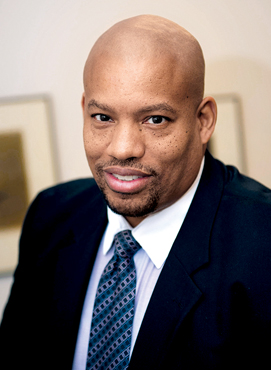 Next, the institute appointed a director: Dr. Antonio “Tango” Thomas. Thomas has served on various student-success initiatives at the College, including Gateway to College and the Student Support Services TRIO Program. Before coming to MC in 2006 as a part-time faculty member, he taught on a part-time basis at American University, DeVry University, and the University of Baltimore. He also has expertise in educational technology and instructional design, including experience in online course development and adult learning.
Next, the institute appointed a director: Dr. Antonio “Tango” Thomas. Thomas has served on various student-success initiatives at the College, including Gateway to College and the Student Support Services TRIO Program. Before coming to MC in 2006 as a part-time faculty member, he taught on a part-time basis at American University, DeVry University, and the University of Baltimore. He also has expertise in educational technology and instructional design, including experience in online course development and adult learning.
Thomas will have support from campus-based managers who serve as liaisons to the campus Provosts’ offices, academic departments, and the resource centers for part-time faculty, which are physically located on each campus. In addition, part-time faculty associates—two at Takoma Park/Silver Spring, two at Germantown, and four at the Rockville Campus—will act as consultants to new part-time faculty. In this new role, the “veteran” part-time instructors will help orient their new counterparts to the College and direct them to services, such as academic and counseling programs.
A large advisory team will also meet monthly to serve as a sounding board to institute director Thomas, as the work of the overarching institute takes hold. Already, changes have begun to help part-time faculty get better connected to students and their peers.
Part-time Faculty Support and Engagement At A Glance
- More professional development opportunities
- Wellness opportunities
- New website and e-newsletter—a robust virtual presence for information, training, and resources for part-time faculty
- New director of part-time faculty
- Campus-based part-time faculty associates
- An advisory team to guide the institute
- New or revamped resource centers (computers, coffee, cabinets, and areas to consult with students)
- Through collaboration with the MC Libraries, the allocation of consultation rooms for part-time faculty to work with students
- Orientation sessions alongside new full-time faculty
- New recognitions and rewards for excellence in part-time faculty
- Peer mentors in the future



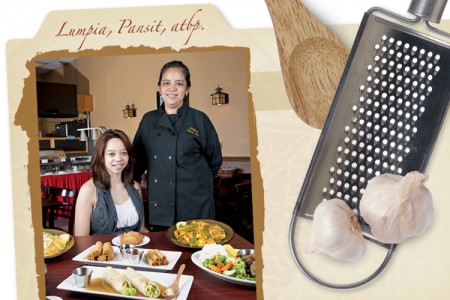


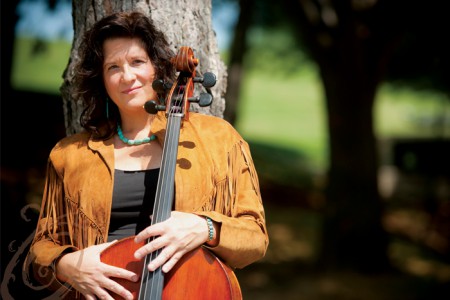
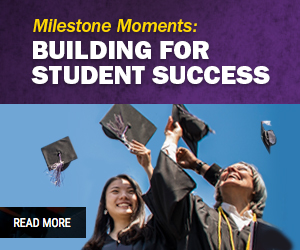
Follow Us